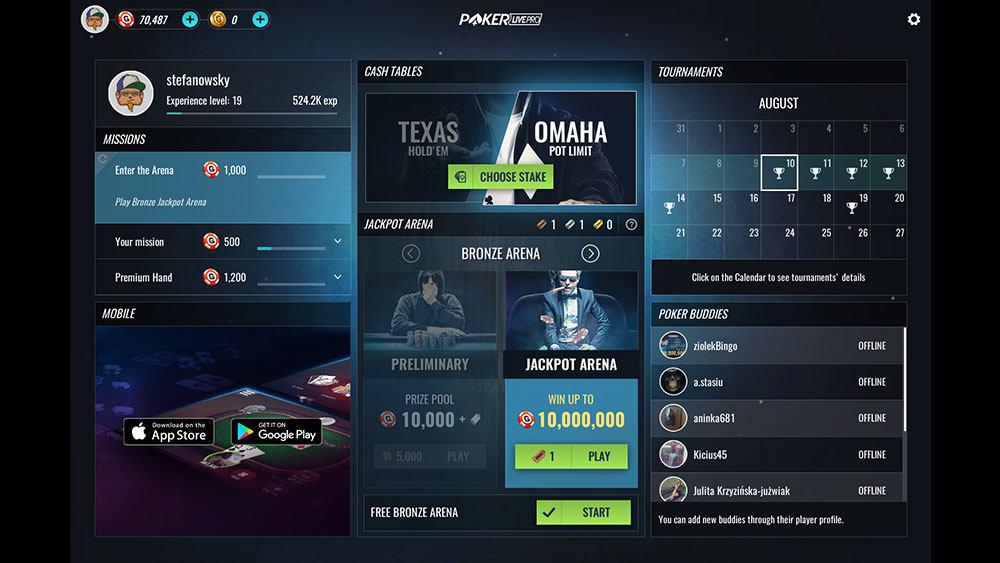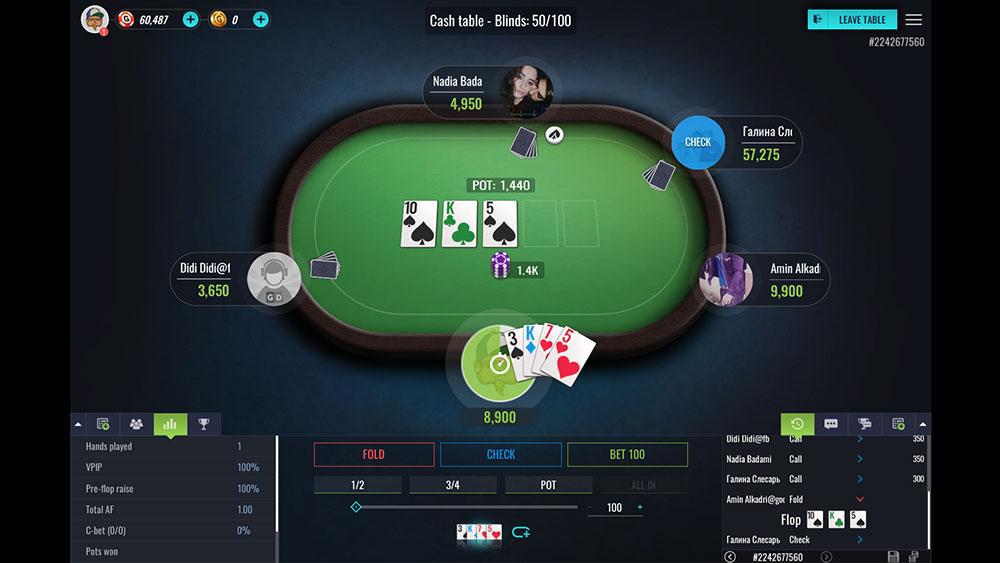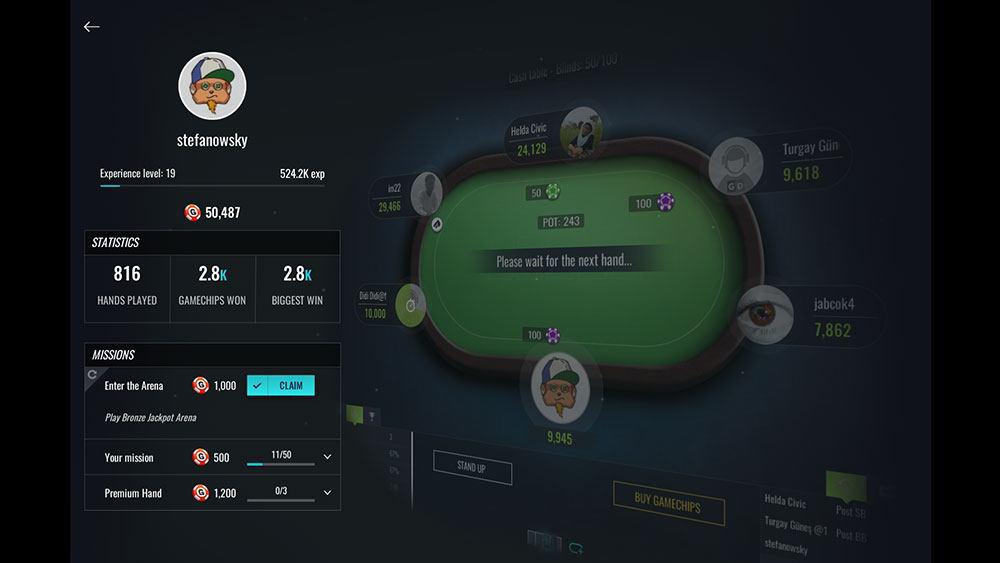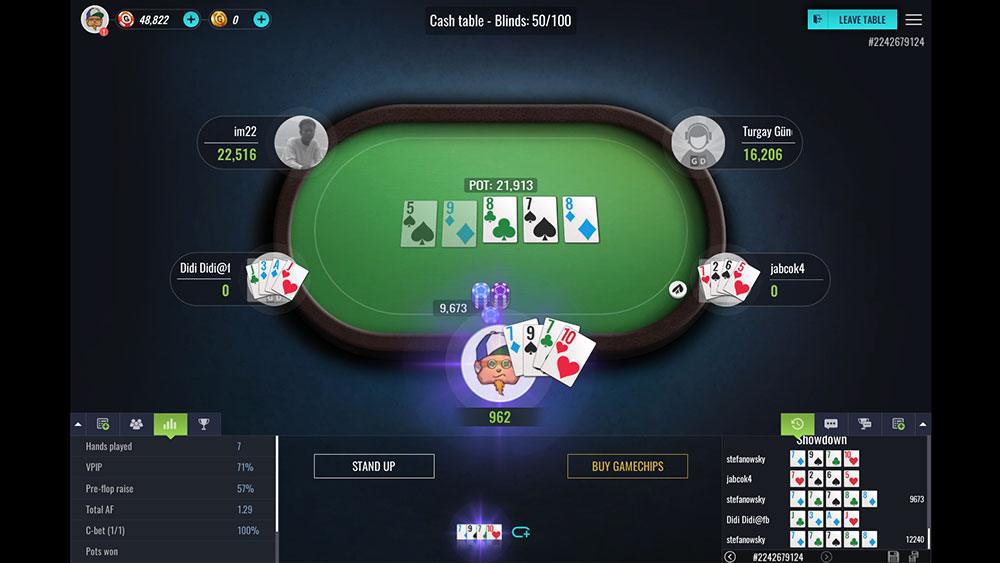How to play Poker Omaha - game rules
Who is the dealer?
When a poker game begins, the first thing to do is to assign the Dealer Button. Players are dealt one card and the highest card determines who will be ‘on the button’ first. Once the hand is over, the Dealer button is moved clockwise around the table to next person. In online poker all of the dealing is done automatically by the software.
What are blinds/antes?
Before the cards are dealt, mandatory bets are taken. An ante is a small bet taken from every player at the table. Not every game uses antes, but when they are used they are always the same for each player. Blinds are larger bets which are only paid by two players each hand. The player to the immediate left of the dealer pays the small blind while the next player pays the big blind. It is common for the big blind to be exactly twice the small blind. Unlike antes, blinds are paid in every hand of poker regardless of game type or format.
How important is position at the table?
The player to the left of the player who posted the Big blind starts the betting. This position is called ‘under the gun’ and it’s the worst position in poker, because it is the first to act. Players in late position have a big advantage because they are able to observe the actions of the players in early position before they are forced to act. Poker is a game of incomplete information, so small edges like this can make a huge difference.
What is betting?
In Omaha and Texas Hold’em there are four rounds of betting. During each round of betting, there are four possible actions a player can take:
- Fold - player discards their hand and gives up any chance of winning the pot (folding is only necessary when one of the players in front of you makes a bet)
- Check- If none of the players in front of you make a bet, you can ‘check’, and pass the action to the next player without folding or making a bet
- Call - match the previous bet
- Bet/Raise - You can ‘bet’ when you are either the first in the round to act or if the players in front of you have all ‘checked’. If one of the players in front of you makes a bet, you can ‘raise’ or increase the bet, forcing all subsequent players to either call the new amount or fold
When can I check?
If there are no bets in the current betting round, a player can check for free. This means not putting in any new GameChips into the pot. Game continues, and the player is still in the hand.
I want to play in a tournament – what should I know?
For starters, you must choose the kind of tournament:
- Sit & Go - is a tournament which does not have a pre-assigned start time. It simply begins when all the seats are filled
- Event - is a tournament which does have a pre-assigned start time
- Satellite - is a tournament in which the prize is an entry into a larger tournament and has a pre-assigned start time
You can customize the ‘Tournaments Lobby’ to sort tournaments in any way you like. On the right side you have Tournament Details with important information about each tournament (e.g. type, costs of buy-in/rebuy, prize pool and player limit). If you want more information you can click the ‘View’ button.
We have the following types of tournaments:
- Freeroll - poker tournament with free access and prizes for winners
- Freezout - it ends a when small number of players (or one player) accumulate all the chips
- Rebuy - you can buy back into the tournament after losing all your chips, or buy more chips to add to your current chip stack (for a fixed period of time at the beginning of the tournament)
- Headsup - only two players compete against each other
- Turbo NL max-6 - a ‘6-max’ game is a game with only 6 players at the table. ‘Turbo’ refers to the speed at which the blinds increase, which is faster than a normal tournament
At the start, players are randomly assigned a place at the table – click the ‘take your seat’ button to view the table and establish your place. You can also view general info about the tournament, status, prizes and blind structure.
Blind structure
Blind structure is extremely important because it determines the pace of the game and therefore how aggressive or patient a player should be. For example, if a tournament has short levels (meaning the blinds increase quickly) then a more aggressive strategy is optimum. Whereas in a slower game the player can afford to be more patient and wait for good cards.
Stack
Your ‘stack’ refers to the amount of chips you have in front of you. In tournament poker, a good general rule is that you should never let your stack drop lower than the equivalent of 10 big blinds. When your stack is at or around this number, you should be looking for opportunities to go ‘all-in’. On tournament tables, the lowest and highest chip stacks are displayed.
Game disconnected – what can I do?
When your game breaks down you can come back without any losses in about one minute. Our system will activate the ‘sit out’ option.





